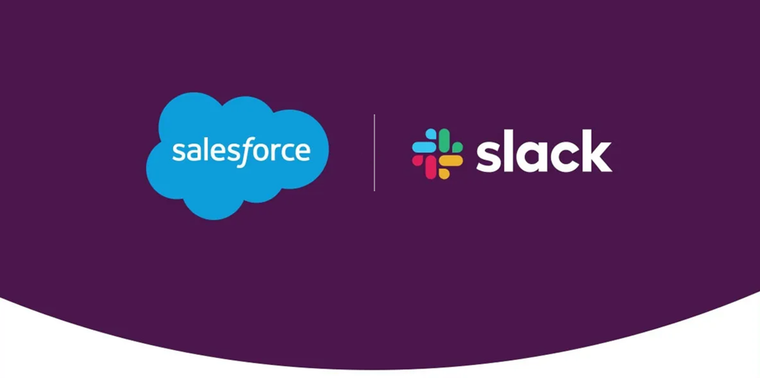Louisiana Becomes First State to Adopt DOGE Voter Maintenance Database
-
Critics of aggressive voter roll purges warn that certain methods can disproportionately impact communities of color, naturalized citizens, and other vulnerable populations.
Supporters of the DOGE system argue that it balances integrity with access by using reliable federal data sources rather than relying solely on third-party reports or unverifiable lists. They note that DOGE does not automatically remove voters, but rather flags entries for further investigation by local election officials.
That sounds pretty similar to what was supposed to happen with facial recognition software, but eventually the people making the call decided that wasn't the efficient way to do things, and just skipped the verification step.
Louisiana’s early adoption of the DOGE system may pave the way for other states to follow, particularly as concerns about election security continue to dominate headlines. Already, several state-level officials from across the South and Midwest have reportedly inquired about the program’s capabilities and the legal framework behind its implementation.
“Louisiana has always been a leader in election innovation,” said Landry. “We were among the first to implement real-time voter check-in technology, and now we’re the first to use DOGE. I expect other states will take a close look at how we’re doing this.”
"Election innovation" is a great euphemism for the Louisiana voting process
In the meantime, the state’s move has sparked a fresh round of conversations about the role of technology in safeguarding the democratic process and how far governments should go in their efforts to verify who gets to vote.
-
Critics of aggressive voter roll purges warn that certain methods can disproportionately impact communities of color, naturalized citizens, and other vulnerable populations.
Supporters of the DOGE system argue that it balances integrity with access by using reliable federal data sources rather than relying solely on third-party reports or unverifiable lists. They note that DOGE does not automatically remove voters, but rather flags entries for further investigation by local election officials.
That sounds pretty similar to what was supposed to happen with facial recognition software, but eventually the people making the call decided that wasn't the efficient way to do things, and just skipped the verification step.
Louisiana’s early adoption of the DOGE system may pave the way for other states to follow, particularly as concerns about election security continue to dominate headlines. Already, several state-level officials from across the South and Midwest have reportedly inquired about the program’s capabilities and the legal framework behind its implementation.
“Louisiana has always been a leader in election innovation,” said Landry. “We were among the first to implement real-time voter check-in technology, and now we’re the first to use DOGE. I expect other states will take a close look at how we’re doing this.”
"Election innovation" is a great euphemism for the Louisiana voting process
In the meantime, the state’s move has sparked a fresh round of conversations about the role of technology in safeguarding the democratic process and how far governments should go in their efforts to verify who gets to vote.
That whole thing just sounds like a much more stupid version of ERIC, which notably Louisiana withdrew from a few years ago.
-
Critics of aggressive voter roll purges warn that certain methods can disproportionately impact communities of color, naturalized citizens, and other vulnerable populations.
Supporters of the DOGE system argue that it balances integrity with access by using reliable federal data sources rather than relying solely on third-party reports or unverifiable lists. They note that DOGE does not automatically remove voters, but rather flags entries for further investigation by local election officials.
That sounds pretty similar to what was supposed to happen with facial recognition software, but eventually the people making the call decided that wasn't the efficient way to do things, and just skipped the verification step.
Louisiana’s early adoption of the DOGE system may pave the way for other states to follow, particularly as concerns about election security continue to dominate headlines. Already, several state-level officials from across the South and Midwest have reportedly inquired about the program’s capabilities and the legal framework behind its implementation.
“Louisiana has always been a leader in election innovation,” said Landry. “We were among the first to implement real-time voter check-in technology, and now we’re the first to use DOGE. I expect other states will take a close look at how we’re doing this.”
"Election innovation" is a great euphemism for the Louisiana voting process
In the meantime, the state’s move has sparked a fresh round of conversations about the role of technology in safeguarding the democratic process and how far governments should go in their efforts to verify who gets to vote.
This is going to be used to suppress legitimate votes, guaranteed. When they get caught, it'll be "a bug in the system" I'm sure...
-
Critics of aggressive voter roll purges warn that certain methods can disproportionately impact communities of color, naturalized citizens, and other vulnerable populations.
Supporters of the DOGE system argue that it balances integrity with access by using reliable federal data sources rather than relying solely on third-party reports or unverifiable lists. They note that DOGE does not automatically remove voters, but rather flags entries for further investigation by local election officials.
That sounds pretty similar to what was supposed to happen with facial recognition software, but eventually the people making the call decided that wasn't the efficient way to do things, and just skipped the verification step.
Louisiana’s early adoption of the DOGE system may pave the way for other states to follow, particularly as concerns about election security continue to dominate headlines. Already, several state-level officials from across the South and Midwest have reportedly inquired about the program’s capabilities and the legal framework behind its implementation.
“Louisiana has always been a leader in election innovation,” said Landry. “We were among the first to implement real-time voter check-in technology, and now we’re the first to use DOGE. I expect other states will take a close look at how we’re doing this.”
"Election innovation" is a great euphemism for the Louisiana voting process
In the meantime, the state’s move has sparked a fresh round of conversations about the role of technology in safeguarding the democratic process and how far governments should go in their efforts to verify who gets to vote.
Of course it’s a state in the Deep South. I’m guessing Mississippi or Alabama will be next.
-
Of course it’s a state in the Deep South. I’m guessing Mississippi or Alabama will be next.
Don't count out Texas.
-
Critics of aggressive voter roll purges warn that certain methods can disproportionately impact communities of color, naturalized citizens, and other vulnerable populations.
Supporters of the DOGE system argue that it balances integrity with access by using reliable federal data sources rather than relying solely on third-party reports or unverifiable lists. They note that DOGE does not automatically remove voters, but rather flags entries for further investigation by local election officials.
That sounds pretty similar to what was supposed to happen with facial recognition software, but eventually the people making the call decided that wasn't the efficient way to do things, and just skipped the verification step.
Louisiana’s early adoption of the DOGE system may pave the way for other states to follow, particularly as concerns about election security continue to dominate headlines. Already, several state-level officials from across the South and Midwest have reportedly inquired about the program’s capabilities and the legal framework behind its implementation.
“Louisiana has always been a leader in election innovation,” said Landry. “We were among the first to implement real-time voter check-in technology, and now we’re the first to use DOGE. I expect other states will take a close look at how we’re doing this.”
"Election innovation" is a great euphemism for the Louisiana voting process
In the meantime, the state’s move has sparked a fresh round of conversations about the role of technology in safeguarding the democratic process and how far governments should go in their efforts to verify who gets to vote.
Critics of aggressive voter roll purges warn that certain methods can disproportionately impact communities of color, naturalized citizens, and other vulnerable populations.
Wow I can't believe the Racism Nexus built by racists is being used in racist ways.
-
Critics of aggressive voter roll purges warn that certain methods can disproportionately impact communities of color, naturalized citizens, and other vulnerable populations.
Supporters of the DOGE system argue that it balances integrity with access by using reliable federal data sources rather than relying solely on third-party reports or unverifiable lists. They note that DOGE does not automatically remove voters, but rather flags entries for further investigation by local election officials.
That sounds pretty similar to what was supposed to happen with facial recognition software, but eventually the people making the call decided that wasn't the efficient way to do things, and just skipped the verification step.
Louisiana’s early adoption of the DOGE system may pave the way for other states to follow, particularly as concerns about election security continue to dominate headlines. Already, several state-level officials from across the South and Midwest have reportedly inquired about the program’s capabilities and the legal framework behind its implementation.
“Louisiana has always been a leader in election innovation,” said Landry. “We were among the first to implement real-time voter check-in technology, and now we’re the first to use DOGE. I expect other states will take a close look at how we’re doing this.”
"Election innovation" is a great euphemism for the Louisiana voting process
In the meantime, the state’s move has sparked a fresh round of conversations about the role of technology in safeguarding the democratic process and how far governments should go in their efforts to verify who gets to vote.
Worked with the US federal government for much of my professional career, mostly in an adversarial role. "reliable federal data sources" do not exist





